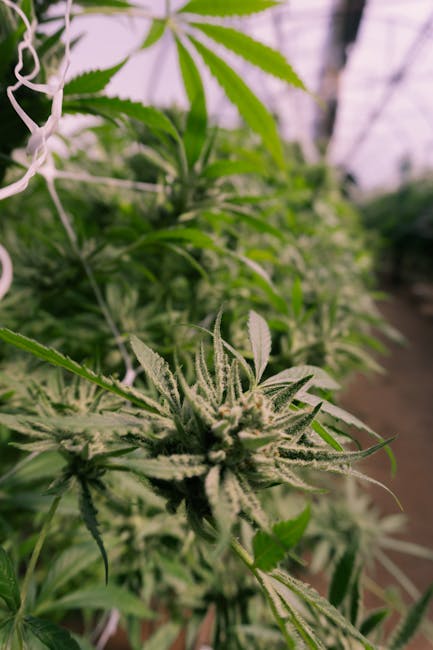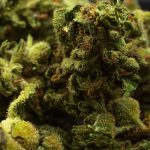
Klaipėda, a major port city in Lithuania, has seen a significant presence of THC weed in its illicit drug market. As with many other cities, the availability and use of cannabis, particularly THC (tetrahydrocannabinol) weed, have been subjects of interest and concern among locals and authorities.
The Legal Status of THC Weed in Klaipėda
In Lithuania, cannabis is classified as a narcotic substance, and its possession, sale, and use are regulated by law. THC weed, being a cannabis product with psychoactive properties, falls under strict control. Possession of small quantities may lead to fines or other penalties, while larger quantities can result in more severe criminal charges.
Availability and Sources
Despite legal restrictions, THC weed is available in Klaipėda, often through illicit channels. The city’s port and its proximity to other European countries contribute to the drug’s availability. Sources range from local dealers to international smuggling networks.
- Local Dealers: Often, THC weed is sold through personal connections or via encrypted communication channels.
- Smuggling: Klaipėda’s port facilitates the smuggling of goods, including narcotics, into and out of the country.
Health and Safety Concerns
The consumption of THC weed poses health risks, including potential dependency, mental health issues, and impaired cognitive function. The unregulated nature of the illicit cannabis market also means that products can be contaminated or adulterated, posing additional health risks to consumers.
Public and Law Enforcement Response
Authorities in Klaipėda, along with national agencies, have been working to combat the distribution and use of THC weed. Efforts include surveillance, raids on suspected dealers, and public awareness campaigns about the risks associated with cannabis use.
- Law enforcement operations target both suppliers and consumers.
- Public health initiatives aim to educate the public about the dangers of THC weed.
The presence of THC weed in Klaipėda reflects broader issues related to drug policy, public health, and law enforcement. While efforts to control its distribution continue, the situation remains complex, influenced by legal, social, and economic factors.
Community Perspectives and Future Directions
The debate around THC weed in Klaipėda, like in many other places, is multifaceted. Some advocate for a more lenient approach, pointing to potential benefits such as reduced crime rates and increased tax revenue. Others emphasize the need for stricter enforcement, citing concerns about public health and safety.
Potential for Reform
There is a growing discussion in Lithuania about the possibility of reforming cannabis laws. Proponents argue that legalization or decriminalization could allow for better regulation of the market, reducing the influence of criminal organizations and ensuring safer products for consumers.
- Regulation: Implementing strict quality controls could minimize health risks associated with contaminated or adulterated products.
- Taxation: Legalization could generate significant tax revenue for the government.
Challenges Ahead
Despite the potential benefits, there are significant challenges to reforming cannabis laws in Lithuania. These include opposition from certain political groups and concerns about the potential impact on public health and safety.
- Convincing lawmakers and the public of the benefits of reform.
- Developing effective regulations that balance individual freedoms with public interests.
The issue of THC weed in Klaipėda is complex and contentious. As discussions around legal reform continue, it is crucial to consider the diverse perspectives and potential consequences of different approaches.
Current Trends and Challenges
The cannabis scene in Klaipėda is dynamic, with trends and challenges evolving continuously. The rise of digital platforms has made it easier for dealers to market and sell THC weed, complicating law enforcement efforts.
The Role of Technology
Technology plays a dual role in the THC weed trade in Klaipėda. On one hand, it facilitates illegal transactions through encrypted messaging apps and dark web marketplaces. On the other hand, law enforcement agencies are leveraging technology to track and disrupt these operations.
- Digital Forensics: Authorities are using advanced digital forensics to identify and prosecute those involved in the illicit cannabis trade.
- Online Monitoring: Monitoring online platforms for cannabis-related activity helps in early detection and intervention.
Community Engagement and Education
Community engagement and education are crucial in addressing the challenges posed by THC weed. Initiatives aimed at educating the public, especially young people, about the risks associated with cannabis use are vital.
- School programs that provide accurate information about cannabis.
- Public awareness campaigns highlighting the legal and health implications of THC weed use.
Looking Forward
The future of THC weed in Klaipėda is uncertain, influenced by legal, social, and economic factors. As the debate around cannabis legalization continues, it is likely that the city will see changes in how THC weed is managed and regulated.
Potential Scenarios
Several scenarios could play out in the future, ranging from stricter controls to more liberal policies.
- Stricter Enforcement: Increased law enforcement efforts could reduce the availability of THC weed.
- Legalization: A shift towards legalization could lead to a regulated market, potentially reducing crime and improving product safety.
The path forward will depend on a variety of factors, including political decisions, public opinion, and the effectiveness of current strategies.



